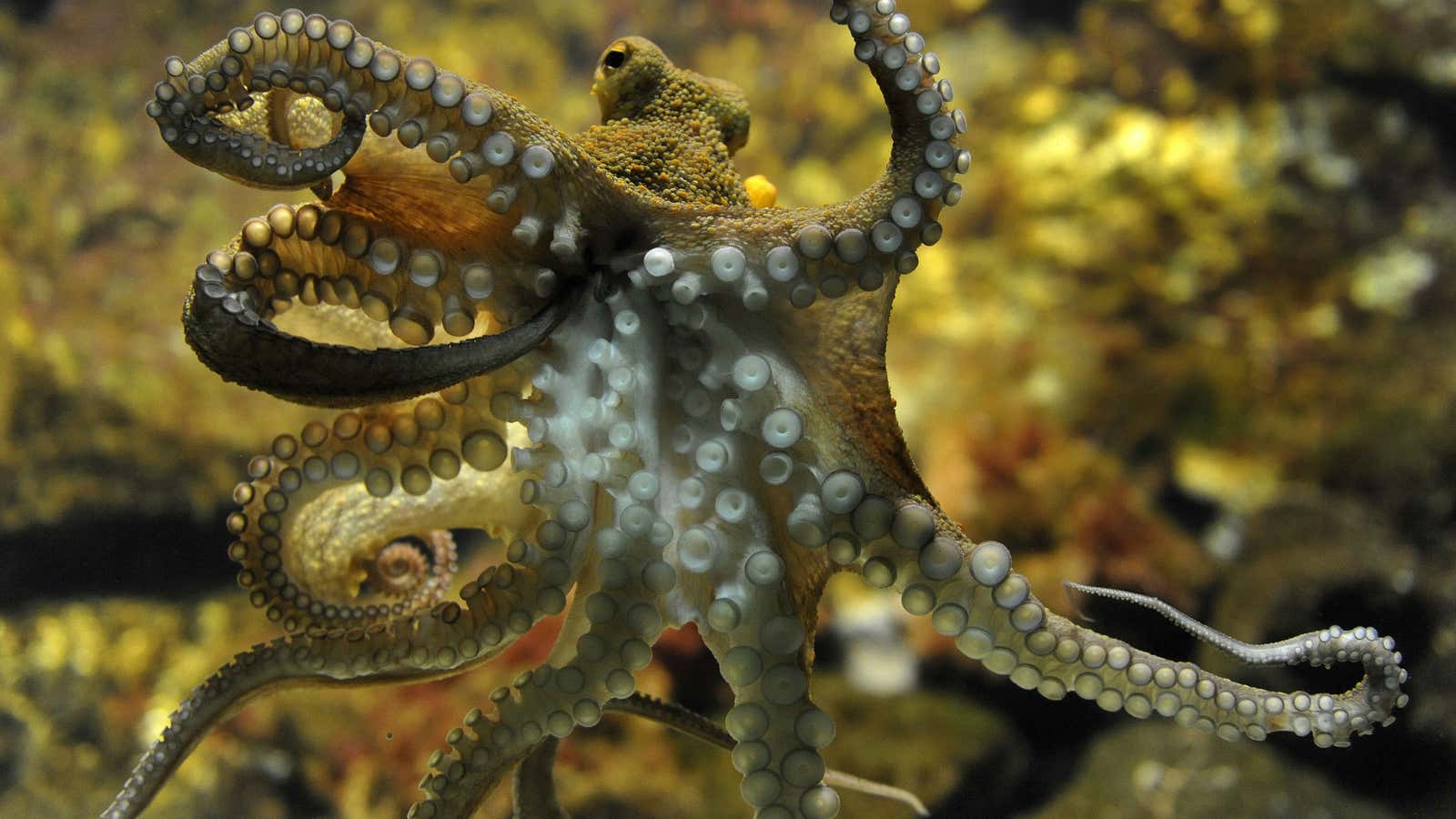If you weren’t amazed by octopuses before, you will be now.
These tentacled cephalopods have always been somewhat mysterious to marine biologists, largely due to the logistical challenge of studying solitary creatures capable of blending in with their surroundings in the depths of the sea. We’ve marveled at their behavior in the past—like when they’ve escaped from aquariums and jumped on land to grab prey—but for all we know, these types of feats could be just beginning of their capabilities.
It turns out these impressive abilities may originate at the molecular level. Researchers from Tel Aviv University in Israel and the Marine Biological Laboratory at Woods Hole, Massachusetts, published a paper on April 6 illustrating that octopuses and their relatives, squid and cuttlefish, can readily change the way they use their DNA. Rather than using their genetic code as a blueprint to build the proteins they need to survive, cephalopods use it more like guidelines.
“This may explain why they’re such good problem solvers,” Clifton Ragsdale, a neurobiologist at the University of Chicago unaffiliated with the paper, told Scientific American.
In most organisms—ourselves included—the instructions to make all of the proteins that give us life are written in molecular code in DNA. When it comes time to use DNA to make these proteins, a set of enzymes reads the double-stranded DNA and translates it into a single strand of genetic code called RNA, which is then read by another set of enzymes that translates it into proteins.
Sometimes, cells find a way to intercept the genetic message during the DNA-to-RNA translation. It’s a process called RNA editing. Instead of making the protein the DNA codes for, RNA editing can produce a slightly different, mutated protein—which can be one way of adapting to a different environment. It can occur in people, but very rarely: for all of our 20,000 or so protein-encoding genes, there are only about 40 places where RNA editing can happen, according to the New York Times (paywall).
But, as the authors of this study discovered, cephalopods tweak their RNA a lot more than we (and most other known life) do. The team compared the DNA in cephalopods to snippets of translating RNA and all of the proteins they produced. Mismatches showed scientists where RNA editing had occurred. In one species of squid, which also has around 20,000 genes for proteins, they found about 11,000 places where RNA editing can occur; the two species of octopuses and one cuttlefish they studied had a similar ratio of protein variation sites compared to their genes.
Scientists have known that cephalopods haven’t evolved that much over time relative to other animals. Normally, this would be a disadvantageous: If a species can’t evolve to keep up with the changing world it lives in, it is more likely to die off. But in this case, researchers think that cephalopods have been able to keep most of their DNA more or less constant because they’ve been able to use RNA editing as a quick way to adapt. The meta-twist is that their ability to manipulate their own code is also preserved in their DNA.
“We want to see which environmental variables influence the RNA editing process—things like variation in temperature…maybe something more complex like experiences,” Joshua Rosenthal, a marine biologist at Woods Hole, told Scientific American.
It may be that cephalopods are some of the most adaptable creatures on the planet. If octopuses end up being our next cephalopod overlords, don’t say we didn’t warn you.
